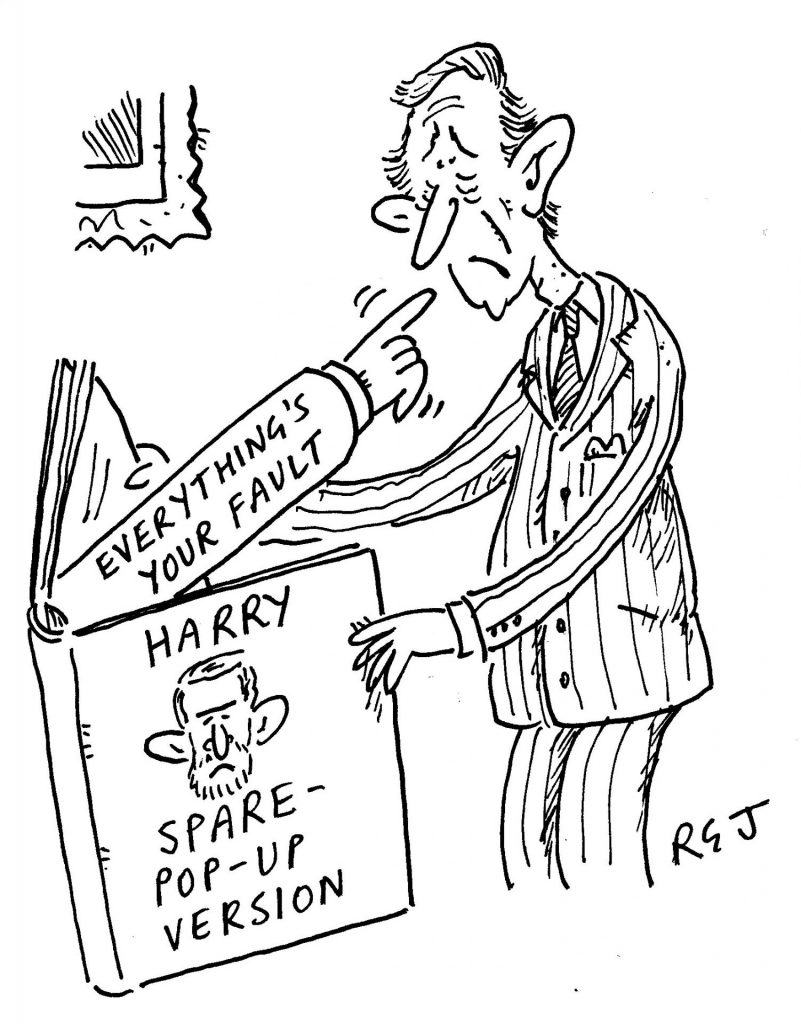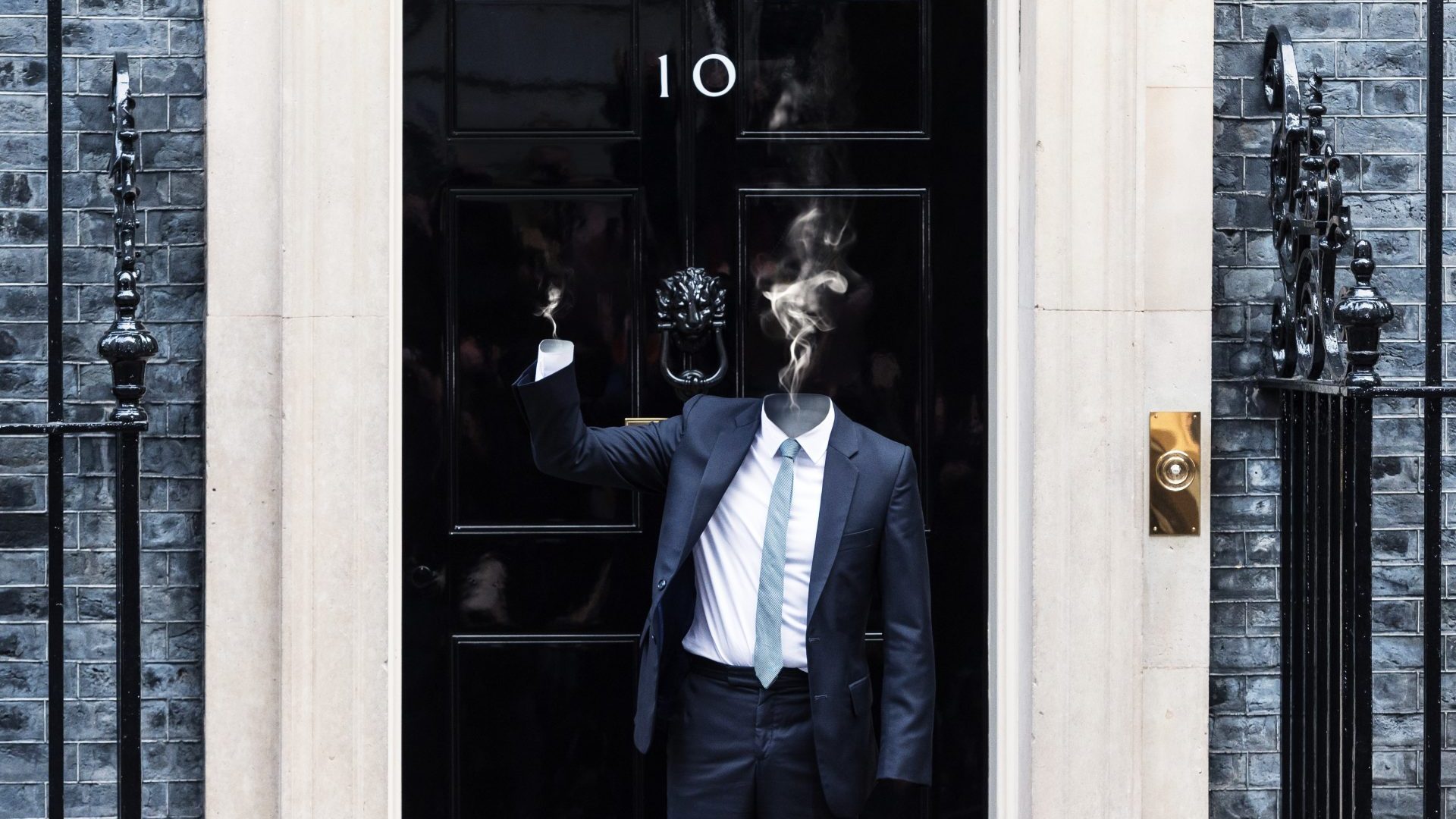One of the benefits of Twitter, even with Mr Musk in charge, is that you can get a sense of what is in the papers, without having to read the damned things. Obviously I don’t include the New European in that catch-all dismissal of the Fourth Estate, as it remains one of the few papers that is aimed at getting people to read it, with a view to becoming better informed, entertained and, dare I say, educated, about things you didn’t know when you turned the front page.
All too many of the others, especially on the right, exist largely to seek to make an impact within the body politic, and to do so by getting noticed by the rest of the right wing media that obsesses the right wing politicians. In so far as I feel any need to know what they are up to, it is purely within that context, which I can glean from a few minutes on Twitter. I would no more want to read one of them from cover to cover, as I regularly do with the New European or Der Spiegel, than I would want to have my teeth removed without anaesthetic.
Take the Telegraph group. There was a time when, though its papers were clearly biased to the right, especially on the comment pages, it was possible to read the news pages and discern genuine news in there, as opposed to the news-bias fusion that now masquerades as news in most of the press. The Daily Telegraph political editor for most of the time I worked in government was a man named George Jones, who was thoughtful, hard-working and genuinely motivated by rooting out facts on which to base his stories.
The paper caught my eye last week because of a tweet by Sunday Telegraph editor Allister Heath – backer of Brexit, of former colleague Boris Johnson and truly, madly, deeply lover of Liz Truss during her brief and catastrophic premiership, which ought to have seen the demise not just of her, but of all who backed her.
“Nobody wants to confront the truth: Britain is becoming a poor country,” he tweeted, his tweet an exact copy of the headline on an article that developed on the theme, in which he said that our national decline was “inexplicable”.
Now, I am not going to pretend that austerity, Brexit, Johnson and Truss are the only explanations for the decline that even people like Heath are now forced to accept is real. But my God, they go a long way to helping us understand it, given they were choices uniquely made by the UK under the Tory right. If I had crashed the economy as Truss did, I would want to hide away for ever; ditto if I had supported her as enthusiastically as Heath and co. However, in the extensive right wing talking bollockssphere, as a general rule, the wronger you are, the higher you fly.
One of the best reads in last week’s New European, as it often is, was Jonty Bloom’s economic analysis. He pointed out that the enormous challenges we face, such as the NHS crisis, social care and pensions, are unlikely to be met without tax rises. However, he added, “the debate is being dominated by the right wingers who got us into this mess and believe the answer is to double down and slash the state further, privatise the NHS and smash what little union power exists.
“What should happen is that we finally start to see ourselves as we really are: ageing, cold, poor, badly governed and appallingly led by a selfish and uncaring, divisive elite, pursuing damaging fantasy policies that have brought us to this pass, and yet still with delusions of grandeur.” Bullseye.
“A selfish and uncaring, divisive elite, pursuing damaging fantasy policies that have brought us to this pass, and yet still with delusions of grandeur”… it sums up not just the Tory government, but the ghastly army of cheerleading hacks who have twisted and turned to back every manifestation of it over a decade that has seen incalculable harm. They deserve to be swept away together, what remains of their reputations disappearing down the same plughole.

Another highlight of last week’s paper was the Danish writer Susanna Søberg’s analysis of the benefits of cold water swimming, something which my partner Fiona and I have taken up in recent years. You may have seen our recent posts from various Scottish lochs, where the water temperature ranged from a warm (sic) of seven degrees, to a cold of two. (Yes, Fiona takes a water thermometer wherever we go.)
There is one element to the whole thing that I think Susanna might add to her analysis – maybe she does in the book from which last week’s extract was taken – and that is the theme of addiction. I am struck by how often cold water swimmers I meet will talk of having had problems with drink, drugs and other addictions.
I have had my issues with drink, and I have something of an addictive personality to this day. There is something of the addict in me that currently feels a bit wobbly if I am unable to get my body into cold open water at some point during the day. Fair to say that some addictions are better for you than others.
The Cares Family charity founder Alex Smith recently introduced me to the concept of “the 200-year present”, the insight that there are people with us today who were alive 100 years ago, and people also here today who will be alive 100 years from now, and in the course of that 200-year span the world will transform many times.
I reflected on it after spending an enjoyable hour chatting with Michael Heseltine for The Rest Is Politics. The former Tory minister, now 89, was born on March 21, 1933. I reminded him of something else that happened on that day… in Germany the new Reichstag was sworn in after the Nazis’ victorious election of March 5. Perhaps that explains why Hezza sees the bigger picture when it comes to European history because of all the change, for good and bad, bad and good, that can come over so many decades.
Hence it was as always a pleasure to hear him state without a hint of doubt or apology that he did not accept for one moment that Brexit is irreversible. Here’s hoping it doesn’t take 200 years.
“I trust that wasn’t one of yours?” tweeted a follower about the “Take Back Control Bill” promised by Keir Starmer.
No, it wasn’t. I am all in favour of greater devolution of power to the nations, regions and cities, but not persuaded that process will be helped by giving its parliamentary passage the label used by liars and crooks for a project that these days even its prime instigators prefer not to be too closely associated with.
If you haven’t seen it yet, I cannot recommend strongly enough Volodymyr Zelensky’s beautifully crafted and beautifully filmed new year message. There are plenty of good subtitled versions of the Ukrainian president’s message easily found online. At 17 minutes, it is quite long for a straight address to camera with occasional film overlay, but it is a communications masterclass.
I fear Rishi Sunak’s new year message is less likely to be remembered, let alone studied in the future. I am finding it harder and harder to concentrate when he speaks, ever since I heard someone say he sounds like a CBeebies presenter. I have never watched CBeebies, yet I somehow know exactly what that means, and it makes Sunak a very tough listen.




